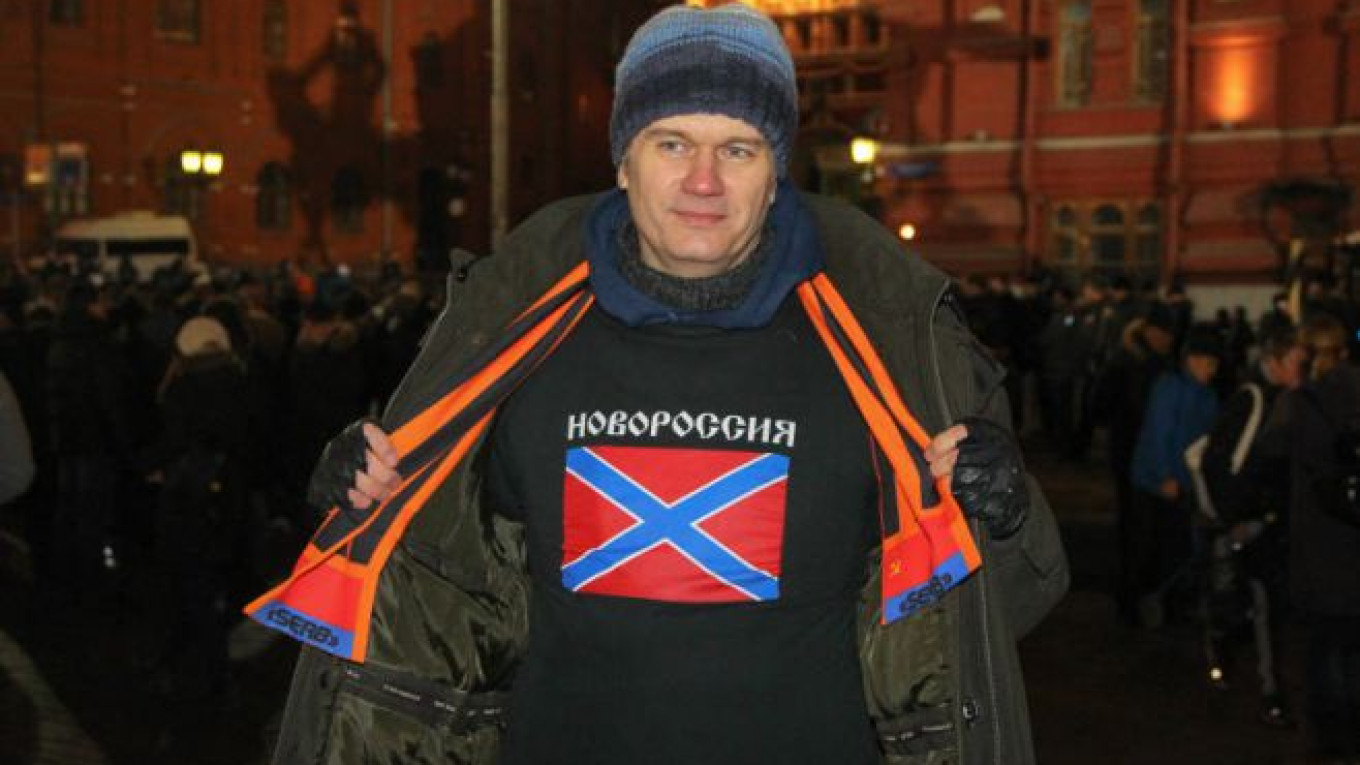On May 20, the leaders of the Luhansk and Donetsk people's republics (LNR and DNR) announced the abandonment of the Novorossia project, a hypothetical confederation of states in southeastern Ukraine stretching from Kharkiv to Odessa.
DNR Foreign Minister Alexander Kofman said that the idea hadn't attracted enough support outside the separatist territories. Oleg Tsaryov, the speaker of Novorossia's "Unitary Parliament" and a frequent guest on Russian television, offered a different explanation: "The work of Novorossia structures has been frozen because it does not conform to the Minsk II peace agreement signed in the presence of Ukraine, Russia, Germany and France on Feb. 12."
It is no coincidence that the closure came just days after U.S. Secretary of State John Kerry met with President Vladimir Putin and Foreign Minister Sergei Lavrov in Sochi, and Assistant Secretary of State Victoria Nuland met with her counterparts in Moscow. Although representatives from the Russian Foreign Ministry insisted that they would not cut a deal with the Americans, the two sides seem to have come to some kind of agreement.
The Novorossia project would not have been shuttered had Moscow not overtly pressured separatist leaders. A week before the closure, the ultra-right Russian ideologue Alexander Dugin suggested in his weekly column for the "Novorossia Information Agency" that a "Crimea for Novorossia" deal was about to be negotiated.
According to this agreement, he suggested, the separatists would comply with the Minsk II agreements and attempt to strengthen the DNR and LNR's autonomy within the borders of Ukraine. Dugin was not alone in his prediction: others have long suggested that such an exchange was possible.
The abrupt abandonment of the Novorossia project was accompanied by more surprises from the Russian authorities. First, a Russian newspaper, RBC, reported that the date of next year's parliamentary elections might be brought forward, perhaps to September 2016 instead of December 2016.
The presumed goal of moving the election would be to lower voter turnout by holding the vote right after the busy summer holidays, thereby creating a parliament that is more favorable to the Kremlin.
Second, the State Duma expeditiously passed and Putin signed a law banning "undesirable" foreign nongovernmental organizations. This move displays a willingness to curtail economic ties with the West, scare away Western investment, and continue the authorities' self-destructive counter-sanctions regime.
These draconian measures seem to be the Kremlin's way of compensating some bellicose members of the Russian elite for agreeing to shut down the Novorossia project, a move that effectively closes the door on their dreams of restoring the Russian empire.
Thus, Moscow seems to have come to the realization that Ukraine has been lost. If the project is indeed shut down, the Kremlin has effectively admitted defeat, no matter how it tries to spin it.
Perhaps Putin has realized that the expansionist project overextended itself; it is now too dangerous to continue beating the war drum. Or perhaps the Russian president simply lost interest in Novorossia.
He has a different game to play now — that of Russia's "pivot to the East." He has already made this a priority, as evidenced by his lively discussion with Chinese President Xi Jinping during the May 9 Victory Day parade.
This game is, like the Novorossia one, rife with imitations and illusions, and its stakes are extremely high. Still, the "empire" seems poised to expand eastward or, at the very least, turn its attention to the East and away from eastern Ukraine.
Andrei Kolesnikov is a senior associate and the chair of the Russian Domestic Politics and Political Institutions Program at the Carnegie Moscow Center. This comment originally appeared on Carnegie's Eurasia Outlook blog.
A Message from The Moscow Times:
Dear readers,
We are facing unprecedented challenges. Russia's Prosecutor General's Office has designated The Moscow Times as an "undesirable" organization, criminalizing our work and putting our staff at risk of prosecution. This follows our earlier unjust labeling as a "foreign agent."
These actions are direct attempts to silence independent journalism in Russia. The authorities claim our work "discredits the decisions of the Russian leadership." We see things differently: we strive to provide accurate, unbiased reporting on Russia.
We, the journalists of The Moscow Times, refuse to be silenced. But to continue our work, we need your help.
Your support, no matter how small, makes a world of difference. If you can, please support us monthly starting from just $2. It's quick to set up, and every contribution makes a significant impact.
By supporting The Moscow Times, you're defending open, independent journalism in the face of repression. Thank you for standing with us.
Remind me later.


